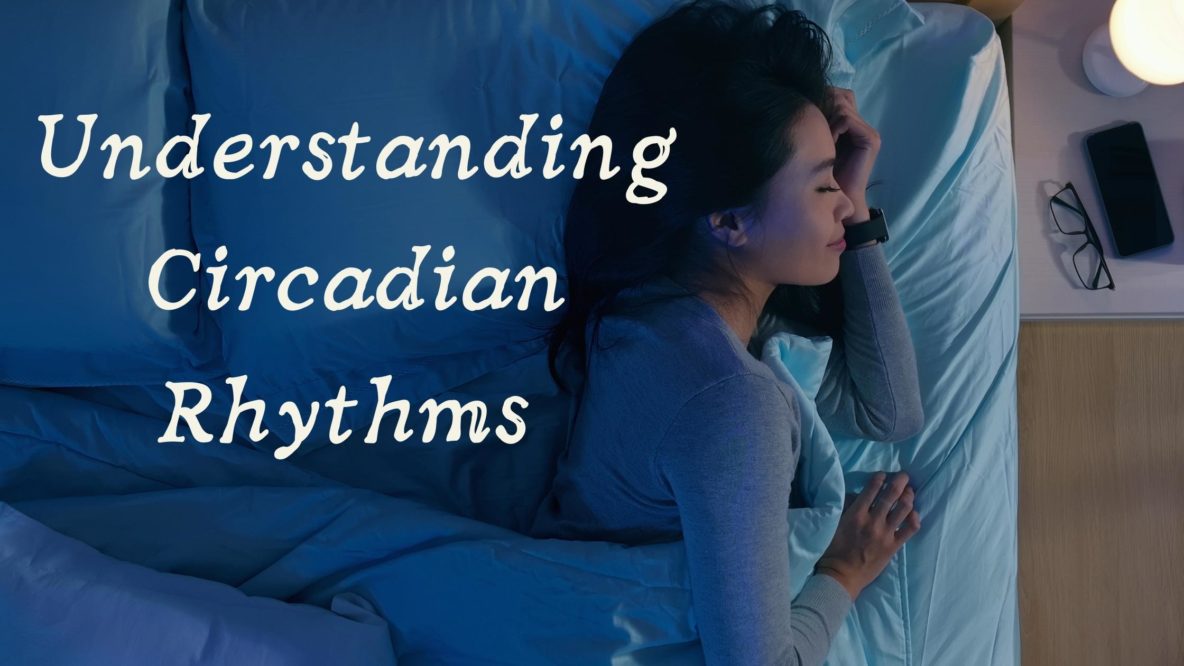Understanding Circadian Rhythms

- A Promising Paradigm Shift: New Research Challenges the CPAP-First Approach to OSA Treatment - September 5, 2023
- Understanding Sleep Meditation Techniques - July 30, 2021
- How Online Learning Has Affected Sleep for Students - July 13, 2021
You’ve probably heard people talk about the circadian rhythms, but what are they? Your circadian rhythm is your body’s internal clock. It regulates a number of functions like the digestive system, body temperature, and even hormone release. One of the main jobs of the circadian rhythm is to monitor your sleeping and waking cycles.
Your Optimal Circadian Rhythm
Your circadian rhythm helps your entire body optimize functioning throughout the day and night. For example, the circadian rhythm tells the digestive system to produce proteins at your normal mealtimes, and it helps the endocrine system get ready around times you usually use a lot of energy.
When you’re perfectly in sync with your circadian rhythm, it also helps you get constituent sleep that leaves you feeling refreshed. Melatonin is released a couple of hours before you normally go to bed. In the morning, your circadian rhythm gently speeds up heart rate and breathing around the time you normally wake up.
Circadian Rhythm Out of Sync
Your body’s master clock is very sensitive to light. In fact, your circadian rhythm takes its cue from the amount of light in your environment, coordinating your internal body with the world around you. increased light makes you more alert and awake, while decreased light signals melatonin production and encourages sleep.
But when you start sleeping or waking at unusual times, your sleep-wake cycle is disrupted, and your body’s systems aren’t functioning as well as they could be. This includes your sleep. You may have a hard time falling asleep when you go to bed, and you may wake up repeatedly throughout the night. You might wake up too early or too late, and never seem to get enough sleep. Being out of sync with the body’s natural sleeping and waking cycle is also linked to insomnia and obstructive sleep apnea. Overall, your sleep quality will be reduced, as well as the total amount of time you spend sleeping.
What Disrupts Circadian Rhythms?
There are a number of things that can disrupt your circadian rhythm, leading to less-than-optimal sleep. These include:
- Shift Work: If you work inconsistent hours, or often work during the night, your circadian rhythm is disrupted by being out of sync with daylight hours.
- Jet Lag: If you’ve been traveling across different time zones, your circadian rhythm gets thrown off. It takes a few days for your body clock to adjust to your current time zone.
- Being a Night Owl: Some people seem to do their best work in the evening. If you’re a night owl, you stay up late and sleep in late. You may be getting enough sleep, but your circadian rhythms aren’t in sync with daylight hours, so your body may not be functioning optimally.
- Napping: Sleeping for more than an hour during the day can disrupt your circadian rhythm, throwing off your natural sleeping and waking cycle. It also makes it harder for you to fall asleep in the evening or sleep soundly throughout the night.
How to Improve Your Circadian Rhythm Function
Are you ready to enjoy a great night of sleep each and every night? Here are some tips on how you can work with your body to improve your circadian rhythm. When you’re in sync with your internal clock, you will sleep better, and wake up feeling ready to face the day.
- Sit in the sun: Since the circadian rhythm is regulated by light, spend a few minutes in the sun every day, preferably in the morning. This indicates to your body that it’s time to be alert.
- Stick to a schedule: Your circadian rhythm functions better with routines. Getting up at different times every day makes it much harder for your body to set a normal rhythm. Stick to a schedule and get up and go to bed at the same time every day.
- Stay away from caffeine: Avoid drinking coffee in the afternoon, since this stimulant can keep you up at night and negatively affect your sleeping and waking cycle.
These are just a few of the ways you can work with your circadian rhythm to enjoy better sleep. Visit Sound Sleep Medical to learn more about the circadian rhythm and how you can improve your sleep.
